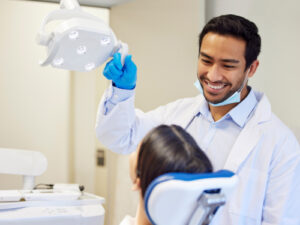Dental Treatment Turkey encompasses a wide range of procedures and services aimed at maintaining and improving oral health. Here are some common types of dental treatments:
- Regular Dental Check-ups: Routine dental check-ups are essential for maintaining good oral health. During these visits, your dentist will examine your teeth, gums, and overall oral cavity to identify any potential issues early on.
- Dental Cleanings: Regular professional dental cleanings, usually done by a dental hygienist, help remove plaque, tartar, and stains from your teeth. This helps prevent gum disease and cavities.
- Fillings: When a tooth has a cavity or decay, your dentist will remove the damaged portion and fill the space with a dental filling, usually made of composite resin, amalgam, or porcelain.
- Root Canal Treatment: When a tooth becomes infected or severely damaged, a root canal procedure may be necessary. During this treatment, the infected or damaged pulp is removed from the tooth, and the inside of the tooth is cleaned and sealed to prevent further infection.
- Tooth Extractions: Sometimes, a tooth may be severely damaged or impacted and cannot be saved. In such cases, the dentist will perform a tooth extraction.
- Dental Crowns: Dental crowns are caps that cover damaged or weak teeth to protect and strengthen them. They are often used after a root canal or to restore a broken tooth.
- Dental Bridges: Dental bridges are used to replace missing teeth. They consist of artificial teeth (pontics) supported by adjacent natural teeth or dental implants.
- Dental Implants: Dental implants are a permanent solution for replacing missing teeth. They involve surgically placing a titanium post into the jawbone, which serves as the foundation for a dental crown.
- Orthodontic Treatment: Orthodontic treatments, such as braces or clear aligners like Invisalign, are used to straighten misaligned teeth and correct jaw alignment issues.
- Dentures: Dentures are removable appliances used to replace multiple missing teeth. They can be either partial (replacing some teeth) or complete (replacing all teeth).
- Gum Disease Treatment: If you have gum disease (gingivitis or periodontitis), your dentist may perform various treatments to improve gum health, such as scaling and root planing or gum surgery.
- Cosmetic Dentistry: Cosmetic treatments, like teeth whitening, dental veneers, and dental bonding, focus on improving the appearance of your smile.
Remember that preventive dental care, including regular check-ups and cleanings, is essential to avoid more extensive and costly treatments in the future. It’s important to maintain good oral hygiene practices at home, such as regular brushing, flossing, and a balanced diet to support your dental health. If you have specific concerns about your oral health, it’s best to consult with a qualified dentist who can provide personalized recommendations and treatment plans.

Regular Dental Check-ups
Regular dental check-ups are a fundamental aspect of maintaining good oral health. These routine visits to the dentist help in the early detection and prevention of dental problems, ensuring that any issues are addressed before they become more significant and costly to treat. Here are some key points about regular dental check-ups:
- Frequency: Dentists typically recommend having a dental check-up every six months. However, the frequency may vary based on individual oral health needs. Some people, such as those with specific dental conditions or a higher risk of oral problems, may need more frequent visits.
- Oral Examination: During a dental check-up, your dentist will perform a comprehensive examination of your mouth. They will check for signs of tooth decay, gum disease, oral cancer, and other dental issues. The examination may involve using dental instruments to probe the teeth and gums gently.
- X-rays: X-rays or radiographs are often taken during check-ups to detect issues that may not be visible to the naked eye, such as cavities between teeth, impacted teeth, or bone loss.
- Professional Cleaning: A dental hygienist will perform a professional dental cleaning during your check-up. They will remove plaque, tartar (hardened plaque), and stains from your teeth. This helps prevent gum disease and tooth decay and leaves your teeth feeling clean and fresh.
- Oral Hygiene Instruction: The dental team will provide guidance on proper oral hygiene techniques, including brushing, flossing, and other cleaning methods tailored to your specific needs.
- Discussion and Treatment Planning: If any dental issues are identified during the check-up, the dentist will discuss them with you and recommend appropriate treatments or procedures. This may include fillings, crowns, gum disease treatment, or any other necessary dental work.
- Preventive Measures: In addition to cleaning and treatment recommendations, your dentist may suggest preventive measures like fluoride treatments or dental sealants to protect your teeth from decay.
- Monitoring Oral Health: Regular check-ups allow your dentist to monitor changes in your oral health over time. This continuity of care helps them track the progress of existing conditions and promptly address any new concerns that may arise.
- Early Detection of Problems: One of the most significant benefits of regular dental check-ups is the early detection of dental issues. Catching problems early often means simpler and less invasive treatments, which can save you time, discomfort, and money in the long run.
- Building a Relationship with Your Dentist: Regular check-ups foster a strong relationship between you and your dentist, leading to better communication and personalized care based on your unique needs and preferences.
Even if you don’t currently experience any dental problems, maintaining regular dental check-ups is crucial for preventive care and to ensure your oral health remains in top condition. If you have specific concerns or it’s been a while since your last dental visit, don’t hesitate to schedule an appointment with your dentist for a comprehensive check-up.
Dental Problems
Dental problems can encompass a wide range of conditions that affect the teeth, gums, and other structures in the mouth. Some of the most common dental problems include:
- Tooth Decay: Tooth decay, also known as dental caries or cavities, occurs when the bacteria in plaque produce acids that attack the tooth’s enamel, leading to its breakdown and the formation of holes or cavities.
- Gum Disease: Gum disease, also called periodontal disease, is an infection of the gums that can lead to inflammation, bleeding, and, in advanced stages, the loss of teeth and bone.
- Tooth Sensitivity: Tooth sensitivity is characterized by discomfort or pain when consuming hot, cold, sweet, or acidic foods and beverages. It occurs due to exposed dentin or worn enamel.
- Bad Breath (Halitosis): Persistent bad breath can result from various factors, including poor oral hygiene, gum disease, dry mouth, or certain medical conditions.
- Tooth Erosion: Tooth erosion is the gradual loss of tooth enamel due to acidic substances, which can be caused by certain foods, beverages, or acid reflux.
- Dry Mouth: Dry mouth is a condition where the mouth doesn’t produce enough saliva, leading to discomfort, difficulty eating and speaking, and an increased risk of cavities.
- Oral Thrush: Oral thrush is a fungal infection caused by Candida yeast. It presents as white, creamy lesions on the tongue, inner cheeks, and other areas of the mouth.
- Impacted Teeth: Impacted teeth are teeth that fail to emerge fully or correctly from the gums. This commonly occurs with wisdom teeth or canines.
- Malocclusion: Malocclusion refers to misalignment of the teeth, which can lead to bite problems, speech difficulties, and jaw pain.
- Bruxism: Bruxism is the habit of grinding or clenching teeth, often during sleep. It can lead to tooth wear, jaw pain, headaches, and other issues.
- Dental Trauma: Dental trauma involves injuries to the teeth or mouth due to accidents, sports-related activities, or other physical impacts.
- Dental Abscess: A dental abscess is a painful infection that forms at the root of a tooth or between the gums and the tooth.
- Dental Discoloration: Dental discoloration can be caused by various factors, including aging, certain foods, drinks, smoking, or medication use.
- Oral Cancer: Oral cancer can affect the lips, tongue, cheeks, floor of the mouth, and throat. Early detection is crucial for successful treatment.
Many dental issues can be prevented or managed effectively with early intervention and proper oral care. Regular dental check-ups and practicing good oral hygiene habits at home are essential for maintaining optimal oral health and preventing dental problems.

